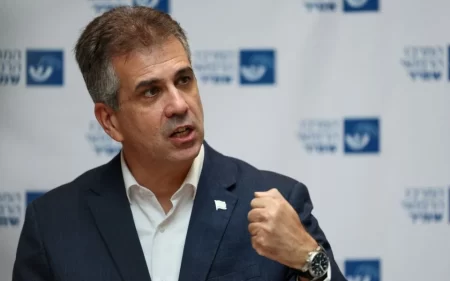 26 April 2014, Accra – he natural resource funds that the Ghanaian government uses to manage oil revenues are relatively well-governed, a non-governmental organization has found.
26 April 2014, Accra – he natural resource funds that the Ghanaian government uses to manage oil revenues are relatively well-governed, a non-governmental organization has found.
The Revenue Watch Institute, a New York-based NGO with an office in Accra, has released research indicating that the Ghana Petroleum Funds meet 13 of 16 good governance fundamentals.
Researchers concluded that the funds feature clear deposit, withdrawal and investment rules, effective oversight, and other essential attributes of good governance. “Together, the Ghana Stabilization Fund and the Ghana Heritage Fund manage more than US$450 million,” said Emmanuel Kuyole, Africa regional coordinator for Revenue Watch.
“Thanks to strong legal provisions, citizens have information on how much is deposited, invested and earned. This transparency is a significant gain. Too much sunshine does not spoil anything.” However, researchers found that there was room for improvement. The case study of Ghana indicated that as of early 2013, when the period of study concluded, there were still problems in terms of public disclosure of external audits and the detailed responsibilities of fund managers and staff.
In response to the report’s release, representatives of the country’s ministry of finance announced that the government had already engaged international accountancy Ernst & Young to conduct an external audit of the funds. Revenue Watch economic analyst Andrew Bauer presented the research yesterday at Accra’s Alisa Hotel. Beyond the findings of the report, he suggested that the government use un-saved revenues for investment rather than consumption.
This comes at a time when Ghana faces volatility in its non-oil revenues and increasing deficit and national debt levels, Bauer explained.”Ghana’s good management of its saved funds demonstrates compliance with the provisions of the Petroleum Revenue Management Act,” said Bauer. “This must also extend to the act’s requirement that revenues be spent in line with a national development plan, to ensure maximum efficiency.”
Several Ghanaian experts were also present at the launch: Joe Amoako-Tuffuor of African Center for Economic Transformation (ACET ) Africa; Major Daniel Ablorh-Quarcoo, chairman of the Public Interest and Accountability Committee; and Honorable Avedzi, chairman of the Parliamentary Select Committee on Finance. “It is one thing to have a strong law, but another to execute it,” said Amoako-Tuffuor. “Ghana must avoid selective implementation which undermines credibility.
Full implementation requires political commitment, diligence of public officials, and a public desire to see the law fully implemented.” All experts on the panel agreed that there is pressing need for the elaboration of a national development plan to guide expenditure decisions. The Revenue Watch study’s Ghana profile maps the management and accountability safeguards of the funds, and also the steps through which revenue flows to reach them.
“Ghana has strong deposit and withdrawal rules that help prevent mismanagement of oil revenues,” the report concludes. Natural resource funds are an increasingly popular subset of sovereign wealth funds, and in principle they serve a variety of purposes: expenditure smoothing, savings of resource revenues, earmarking money for development, “sterilizing” of revenues to avoid adverse macroeconomic impacts, and protection from corruption.
The Revenue Watch study details six key steps that countries can take to ensure accountability and transparency, including the establishment of fiscal rules, the elaboration of investment rules, and strategies for the creation of strong oversight bodies.
– The Chronicle



